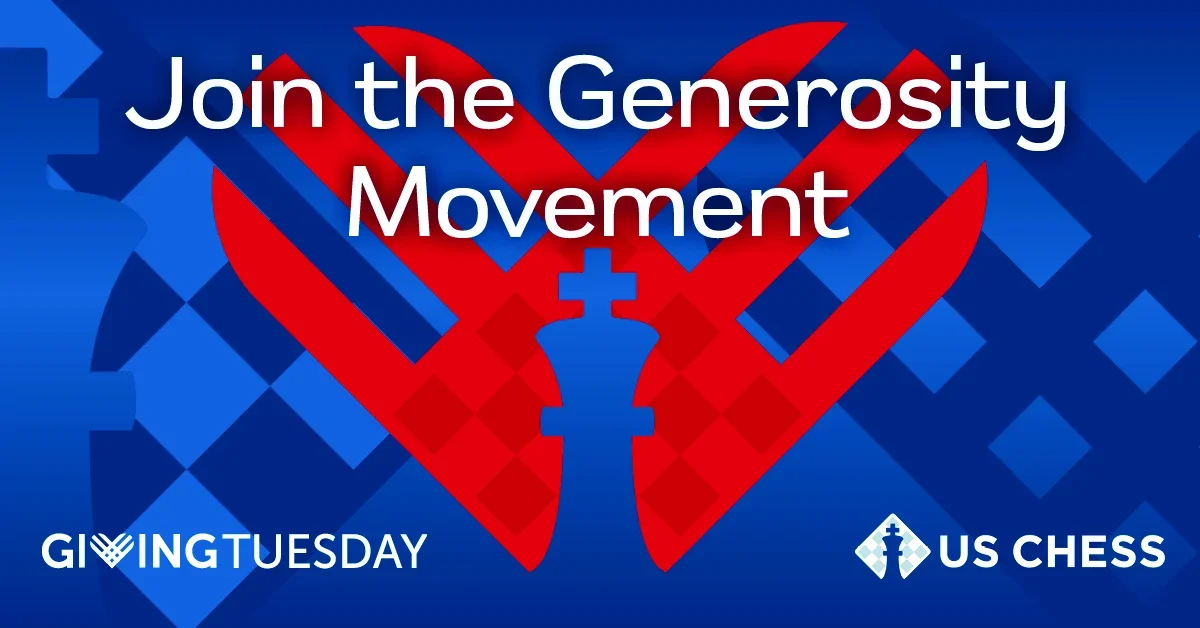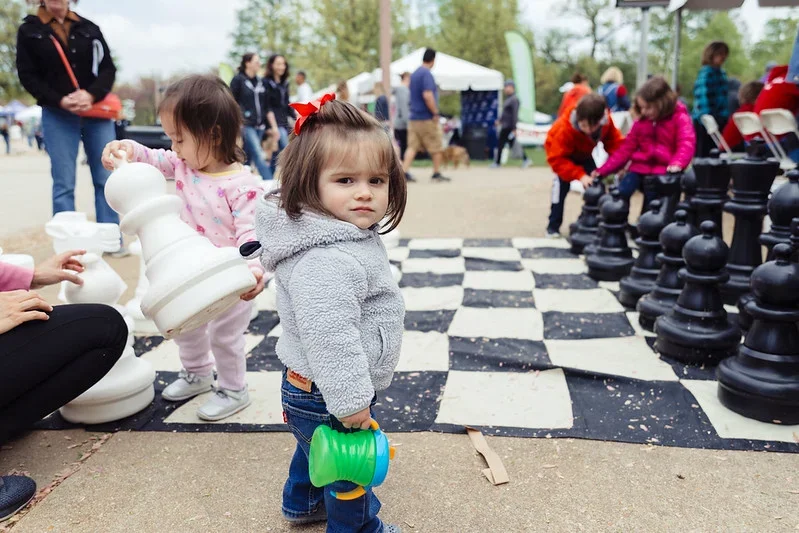
courtesy of Saint Louis Chess Club.
#GivingTuesday is a global day of generosity taking place on November 28. It was created in 2012 as a simple idea: a day that encourages people to do good. Since then, this idea has grown into a year-round global movement that inspires hundreds of millions of people to give, collaborate, and celebrate generosity.
Make a donation of any amount by clicking here
US Chess is proud to be a part of this global celebration of giving that empowers people and organizations to transform their communities and the world. #GivingTuesday is an opportunity for members of the chess community to stand united and make a positive change in the lives of others.
Changing Lives Through Chess
Our mission: Empower people, enrich lives, and enhance communities through chess.
US Chess is the official governing body and charitable organization for chess players in the United States. With more than 110,000 diverse members, we facilitate connection among clubs, scholastic programs, and individuals across the nation.
An estimated 70 million chess enthusiasts in the United States have yet to join — or hear of — US Chess. We want to reach out, extend an invitation, and ensure that chess is fully recognized nationwide for its benefits as an invaluable tool for education, recreation, and rehabilitation.
Make a donation of any amount by clicking here
Everyone Has a Seat at the Table
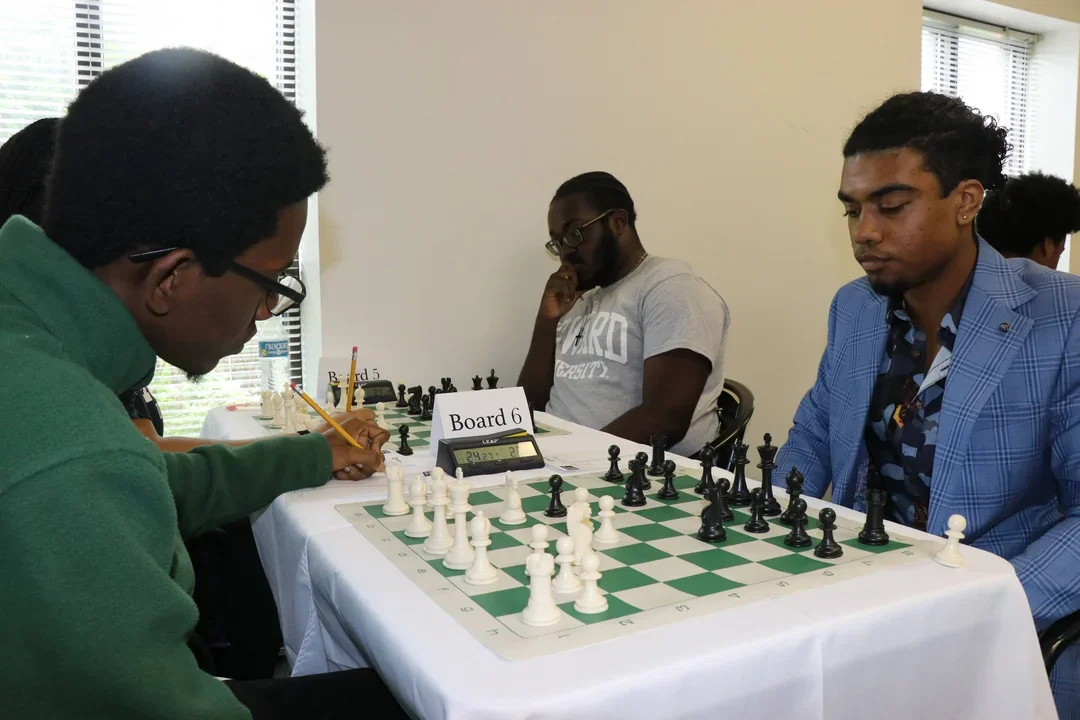
Few organizations can match the diversity of our community and the gratifying sense of inclusion that comes with it. While the cognitive benefits of chess have long been recognized, its unique power to bring together disparate groups of people has not been fully appreciated until recently. Walk into most chess clubs today and expect to see children playing adults, men playing women, and many other matches that cross ethnic, gender, and social divides.
That’s because the chessboard is a level playing field. While skill is essential for winning, anyone can play and improve. Advancing in chess is based purely on merit. Age, ethnicity, gender, race, religion, income, background, physical disability — even common language — are all irrelevant.
Much like playing the game, being a member of the US Chess community isn’t conditional on what you have, where you live, or your physical abilities. An affinity for chess is the qualifying factor.
Everyone can have a seat at the chess table. And everyone is welcome in the US Chess Federation. We believe the culture of inclusion is our unique strength and advantage.
Women and Girls Claim Their Power
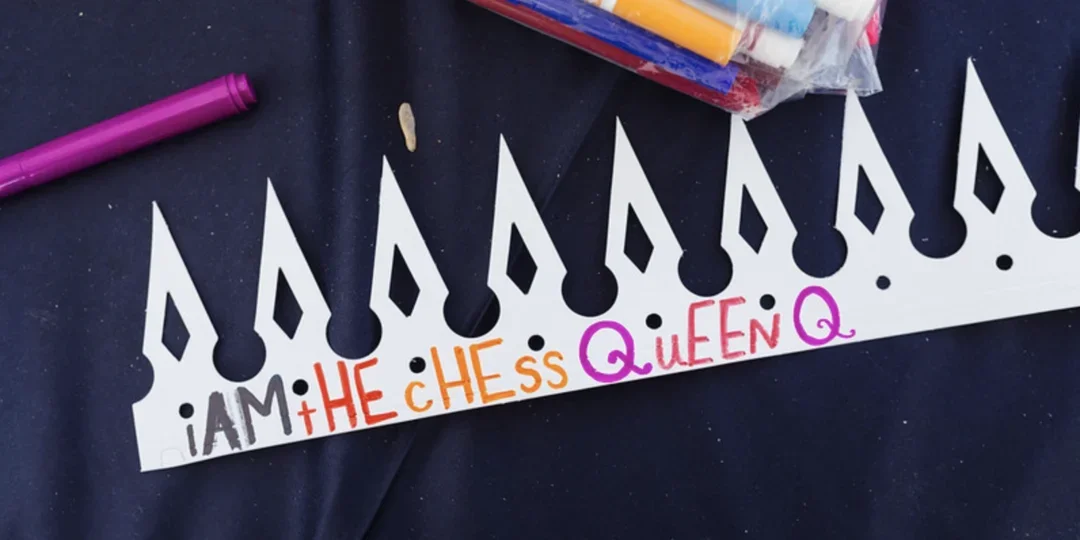
In the past, playing chess has been predominantly a man’s world. We’re pretty sure that says more about the past world than it does about chess. That was then.
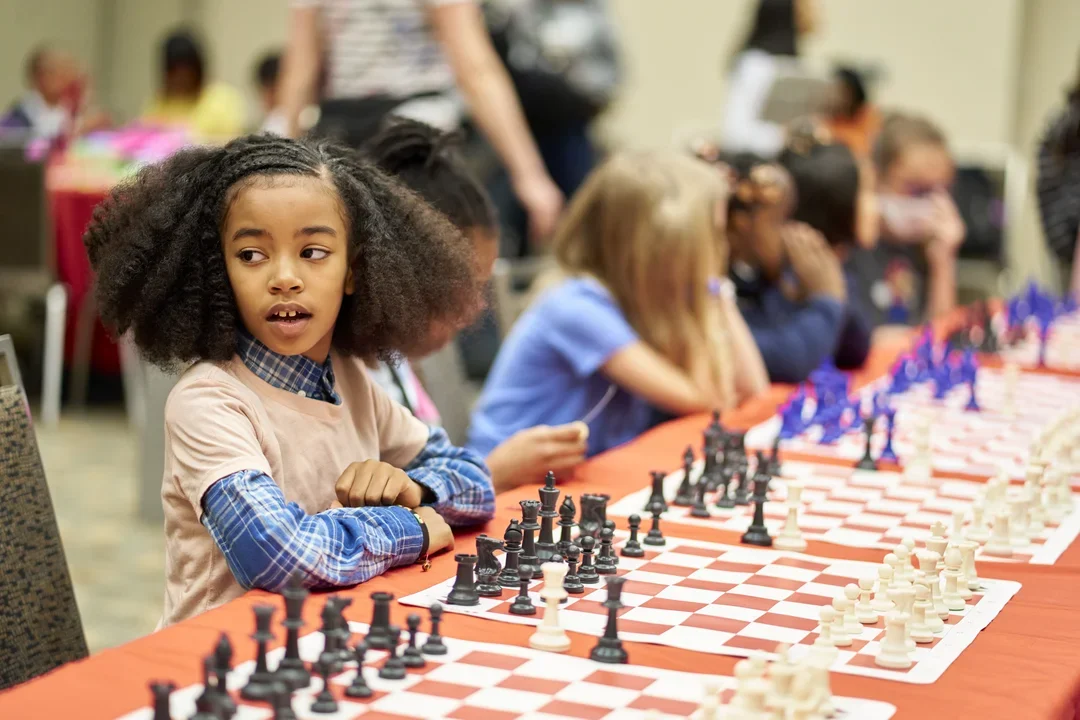
In 2015, US Chess established the Women In Chess Initiative to proactively invite more females into the game. We envision a future in which girls, women, and gender minorities take their share of the chess world’s offerings, from titles to educational opportunities. Our multi-pronged and intersectional approach to empowering women and girls through chess also helps them form connections and build community.
We strive to attract and keep our youngest female players by creating spaces that feel safe, welcoming, and encouraging. Our girls clubs, which began in 2016, have drawn thousands of girls who form friendships in between games over casual chess and presentations by role models and top female players. Our goal is to inspire and connect, particularly at our national Open (mixed gender) events, where girls comprise only 10-25% of the players.
Our initiative seeks to eliminate gender disparity. We’re working toward to the day when women will fully claim their place in the game and their seat at the table.
Make a donation of any amount by clicking here
Building Minds
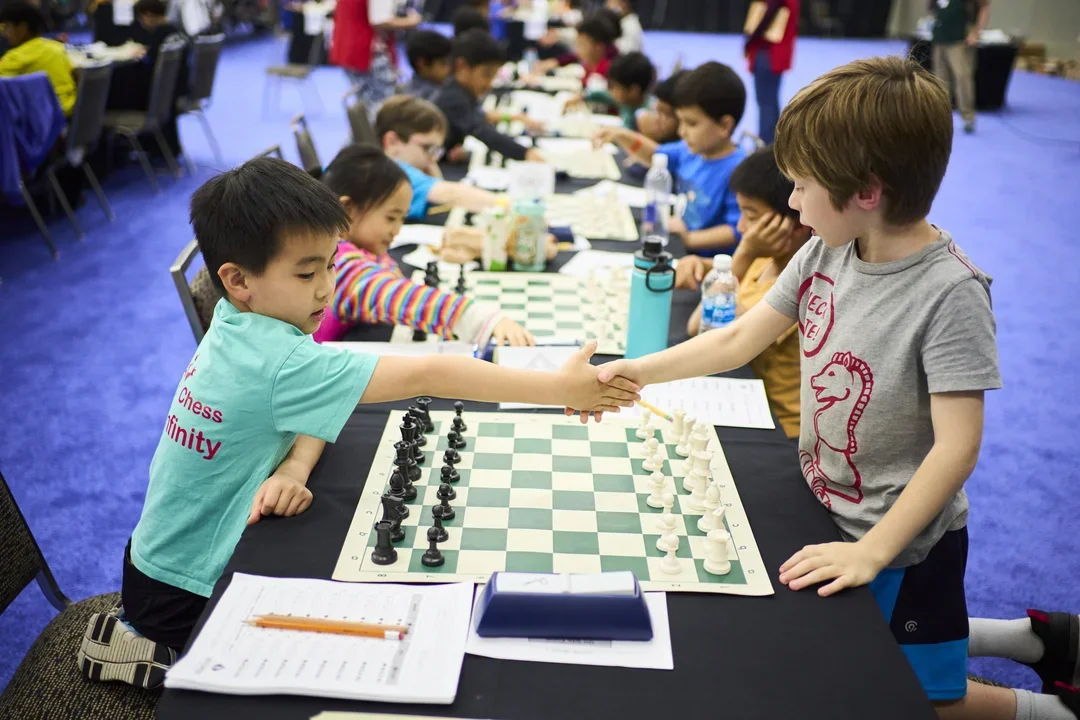
The reputation of chess for enhancing cognitive skills makes it a natural fit as a collaborative tool in education.
Chess develops a capacity for concentration, the ability to reason, and an aptitude for problem solving — all transferrable skills that can benefit students for a lifetime. By playing chess, kids learn the cause-and-effect element of logic, and this helps them to see that their choices have consequences.
Built into chess culture is the opportunity for learning to win and lose well — in a supportive setting. While winning makes children feel proud of themselves and builds their confidence, learning to lose well means being able to cope and move on successfully when things don’t go their way. Both contribute to success in life. Additionally, many educators have reported behavior improvements in kids who spend time learning to play chess in the classroom.
Many schools across the nation have extracurricular chess clubs and, in some cases, chess coaches and teachers are an integral part of the curriculum. Supporting existing programs and casting the vision for more ways school-aged people can experience the benefits of the game is a top priority of US Chess.
Chess Changes Lives
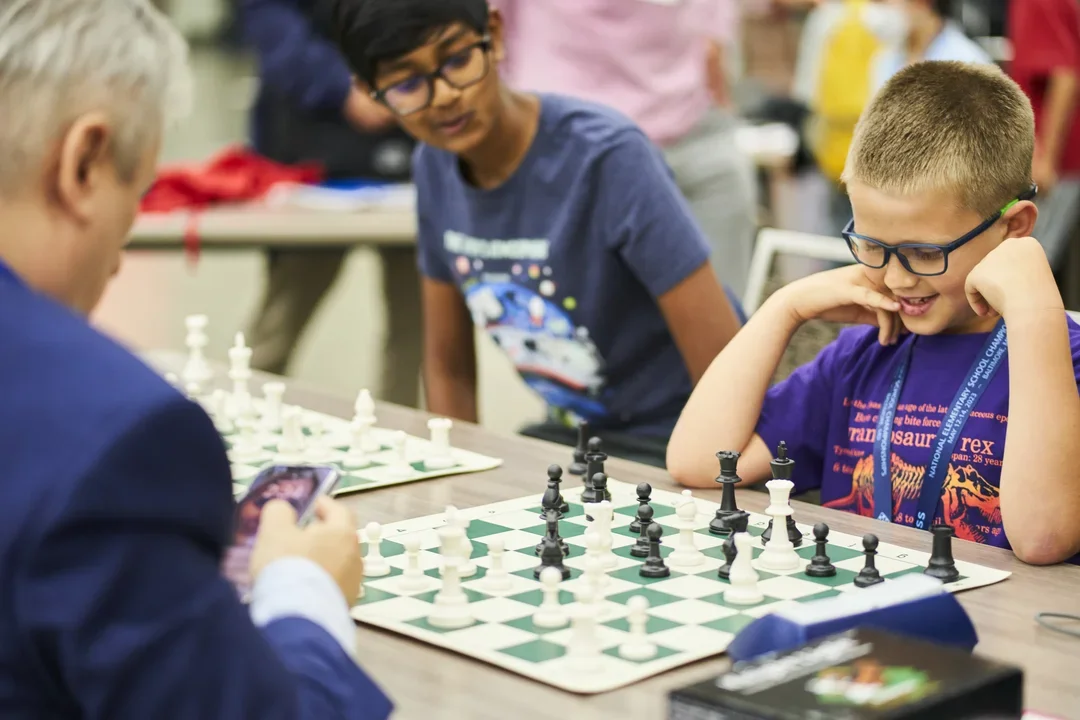
Partnering with US Chess is an effective way to give at-risk youth the opportunity to seize their potential. Inclusion in a chess community offers at-risk youth a safe, friendly environment where they learn to think critically, plan their moves, and execute their strategy.
Further, chess provides important mentoring opportunities that encourage a successful transition into adulthood. At this critical time in their lives, young chess players can learn to make positive choices and resist intense peer pressure. The sense of belonging and inclusion in the chess community also opens minds to future possibilities such as STEM-focused careers in math, engineering, finance, and computer science.
Our initiative seeks to provide everything that at-risk players and Title I schools need to compete in local and national chess tournaments, including membership fees, chess equipment, tournament registration fees, and chess instruction, as well as the costs to travel to national tournaments. More importantly, supporting our At-Risk Youth Initiative truly helps change lives.
Make a donation of any amount by clicking here
Seniors and Chess: A Great Match
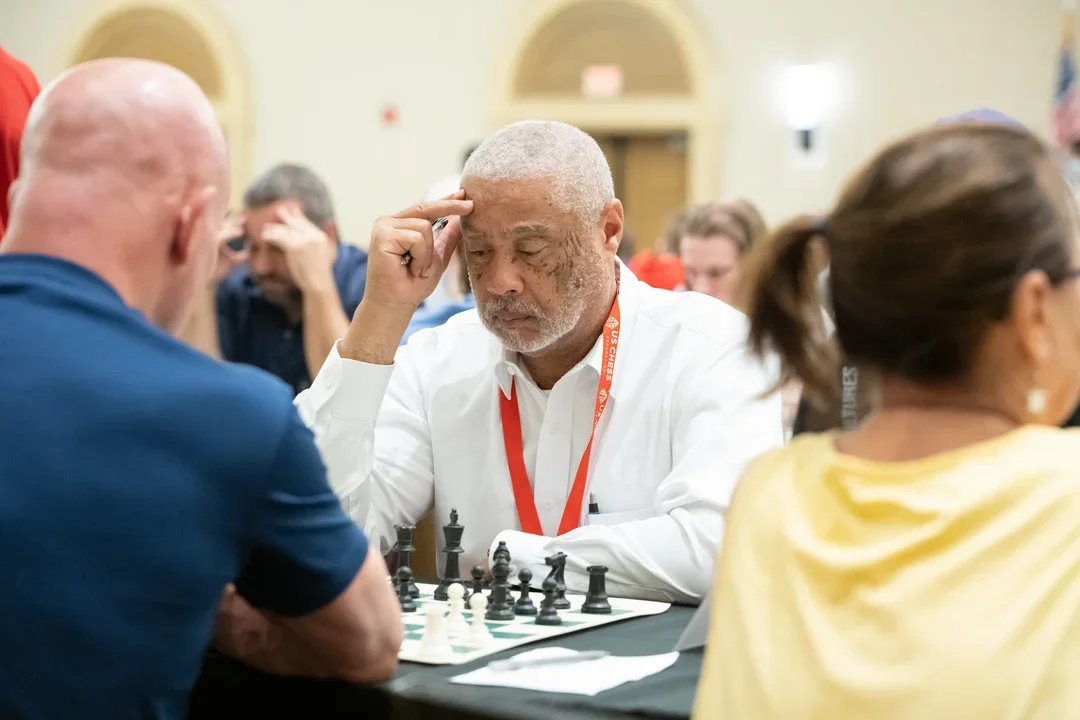
While modern research substantiates the importance of mental and social activity for seniors, chess has been the loyal facilitator of both all along.
Playing chess is calisthenics for the mind. It actively engages the brain and has been shown to strengthen reasoning and retention in aging adults. Additional research has linked chess to lower rates of dementia in active players. Chess is also a social game. It offers a ready excuse to get together with others, and it can provide opportunities for tournament competition and travel as well.
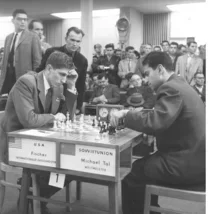
But not only is chess good for seniors, seniors also are good for chess. Seniors remember Bobby Fischer and the 1972 World Championship match that captured the nation’s attention. They were there when chess moved to the forefront in popular culture, and they have comprised a significant demographic of US Chess membership through the years.
Their dependable, loyal support lends stability as we continue to evolve into an organization that welcomes everyone into the community, and their skills, experience, and wisdom remain fundamental to the identity of US Chess.
Help Support US Chess
Between now and November 28, please consider how you’d like to participate in #GivingTuesday by advancing our collective mission to “Empower people, enrich lives, and enhance communities through chess.”
Perhaps there’s a US Chess program or event you’d like others to enjoy. Or maybe you’d like to give someone a US Chess membership.
If you would like more information about making a gift to US Chess, please contact us by emailing Click here to show email address or calling 1-800-903-8723, extension 5. Make a donation of any amount by clicking here
Please support chess in the United States. Make a tax-deductible donation to the US Chess Federation today. Donate online:
Or send a check to:
US Chess Federation
PO Box 775308
St. Louis, MO 63177
US Chess Federation is a 501(c)(3) organization.


